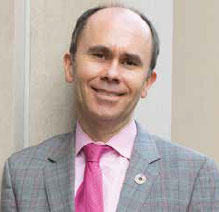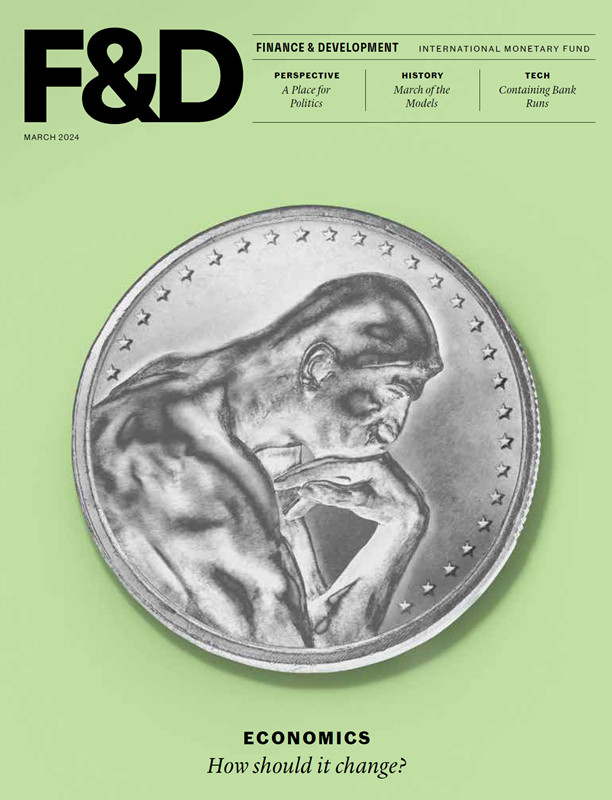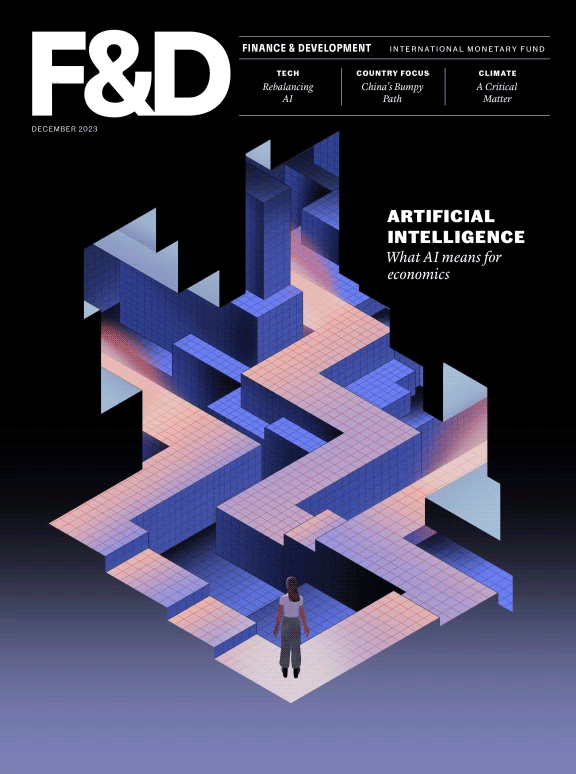Point of View
Restoring Ethics to Economics
Modern economics should return to its roots

The dominant economic paradigm is facing a crisis of legitimacy. There are numerous dimensions to this fall from grace—rising inequality and economic insecurity; raw memories of the global financial crisis and the impunity enjoyed by those who provoked it; and a pattern of globalization perceived to privilege large corporations and the financial elite. Looming over it all is the specter of climate change. These fault lines are undermining trust in institutions, both national and global, and sometimes even provoking a backlash in the form of insularity and a tilt toward extremism.
A response to these challenges can be found in the 17 Sustainable Development Goals (SDGs) adopted by 193 nations in 2015 under the auspices of the United Nations. These goals are predicated on the idea that economic progress can no longer be evaluated without reference to social inclusion and environmental sustainability. Implicit is the notion that markets alone cannot solve these problems, which require cooperation between nations at a global level and social partners at a national level.
This shift in turn requires a serious rethink about the ethical foundations of modern economics. Such a conclusion might seem peculiar, however. Neoclassical economics, after all, evolved in a way that created a sharp distinction between the positive and the normative, between facts and values. Yet there is no way to divorce values from economic deliberation. And on the big questions posed by moral philosophy—relating to the nature of a human being, the purpose or goal in life, and the right course of action in different circumstances—economics proposes specific answers.
These answers are, I believe, inadequate. The ethical paradigm of neoclassical economics centers on “homo economicus,” who is driven by self-interest to seek the maximization of subjective material preferences—which is shown to be achievable (under highly restrictive assumptions) by competitive markets.
But is homo economicus an accurate reflection of human nature? Not according to the latest evidence from psychology, neuroscience, and evolutionary biology. Harvard biologist Edward O. Wilson, for example, argues that evolutionary forces imply the triumph of selfish people over altruists within groups, but that groups of altruists beat groups of egoists. If this is correct, then humans are hardwired to cooperate and uphold moral norms. Yet it also signals built-in tendencies to favor insiders and demonize outsiders.
From this perspective, I would argue that most ethical frameworks (both secular and religious) have a common goal—encouraging people to cultivate prosocial traits and to suppress those that are selfish and aggressive.
Neoclassical economics stands out as an exception. It endorses egoism, elevates material pursuits, and ignores ethical formation—preferences, after all, are held to be sovereign, subjective, and never open to scrutiny. And not only is virtue deemed irrelevant, but what older traditions regarded as vice is held to be beneficial. This is the basis of Adam Smith’s famous claim that self-interest rather than benevolence serves the public good (although Smith himself was far more nuanced than many of his followers on that point).
A critical assessment of neoclassical economics must begin by asking what human beings actually value. An obvious answer is happiness. But this means different things to different traditions. Utilitarianism sees happiness in the hedonic sense of maximizing pleasure and minimizing pain, and neoclassical economics is heavily indebted to this tradition. The Aristotelian approach puts forth a deeper notion of eudaemonia, human flourishing, identified with living a full life in accord with what is deemed intrinsically worthwhile—meaningful relationships, a sense of purpose, and contribution to the community. For Aristotle, this requires the inculcation of virtue—best understood as actualizing potential, so that people move from what they are now to what they could be if they realized their essential nature. This is closely related to the capability approach associated with Amartya Sen and Martha Nussbaum, which stresses unfolding capabilities, the ability to do or be what a person values doing or being.
Primacy of relationships
Modern psychology gives some support to these insights. The literature on subjective well-being, for example, shows the primacy of relationships and purpose for well-being, affirming that money does not buy happiness beyond a certain level. The annual World Happiness Report shows that happier countries are not only wealthier, but also enjoy stronger social support, higher levels of trust and generosity, and a greater ability to unfold capability free from impediments (including corruption).
Copious studies also show that humans are endowed with prosocial inclinations such as altruism and a sense of fairness. Recent findings from behavioral economics, for example, show that people are inclined to cooperate, share, and reward trust, but also to punish cheating and opportunism, even at a financial cost to themselves.
If these insights are true, then it should come as no surprise that people feel such anxiety about precarious job prospects, given that decent work is a vital dimension of human flourishing—a core source of dignity, purpose, and social contribution. Or that they react negatively to perceived cheating and unfair advantage in the global economy.
In the Aristotelian tradition, the common good is understood as the good arising from a shared social experience that transcends the good of the individual, excludes no one, and cannot be disaggregated into the sum of individual goods. It reflects the insight that we flourish only in relation to others. Politically, it is synonymous with institutions that further the well-being of all, including future generations.
This notion of a common good is an uneasy fit with ethical paradigms emerging from the Enlightenment, which stress individuals’ autonomy in pursuit of their own concept of what is good. This approach has brought enormous ethical advances, chiefly through its emphasis on universal human rights, but the loss of an objective common good carries a cost—it becomes too easy to reduce all value judgments to subjective preferences.
Ethical blindspot
Neoclassical economics falls prey to this temptation. With no mutual common ends, the goals of economic life are reduced to material and financial gain. Economic actors are expected to respect laws and property rights rather than moral norms and to be guided by financial incentives rather than virtue. This represents an ethical blind spot. It is precisely this mentality that fuels massive inequality, financial instability, and the environmental crisis. As Sen notes, an economy can be Pareto efficient—whereby market exchange achieves the maximum satisfaction of preferences—but still “perfectly disgusting.”
Delving even deeper, there is evidence that inculcating the values of homo economicus leads people to suppress empathy and solidarity in favor of egoism and opportunism. As the American economist Samuel Bowles notes, excessive reliance on financial incentives can undermine virtue, despite a growing awareness that key markets and institutions simply will not function without some commitment to virtues such as fairness, honesty, and trust. It makes little sense to claim that any value judgment beyond efficiency lies outside the discipline’s domain. Homo economicus appreciates none of this—and is, as Sen says, a “social moron.”
We need a commitment to the common good as a moral boundary on the market economy, which suggests not only allowing all people to release their capabilities, but making sure that these are directed toward some agreed-upon common ends—especially as framed by the SDGs. Given the gravity of the environmental crisis, shifting to a zero-carbon energy system over the next three decades is of paramount importance.
A cosmopolitan responsibility?
This raises another question: how far should the common good extend? One answer assumes a responsibility to all humanity. Such universalism is deeply embedded in modern moral philosophy. It is foundational to Immanuel Kant’s duty-based categorical imperative, which permits only maxims that can be universalized. It also underpins utilitarianism, which is predicated on seeking the greatest happiness of the greatest number. This universalism is especially pronounced in Princeton philosopher Peter Singer’s argument that we are obligated to assist those in need anywhere in the world when it is within our power to do so. Such cosmopolitan responsibility is surely magnified by bearing some blame for the underlying predicament (as with wealthy countries and climate change).
Yet Aristotle and the Greeks were far more particular in their ethics—they regarded the common good as limited to the city-state and wrote women and slaves out of the equation. In some respects, this plays to the innate tendency toward in-group preference. Yet we must also recognize that we are socially embedded beings with a deep attachment to community as the locus of civic friendship, identity, meaning, and purpose. This is key to understanding the backlash against globalization.
How can we better balance these competing moral claims? There is no easy answer, and this question touches on cultural as well as economic factors. But the SDGs do offer a path through the thicket—a road map for global action that is both practical and affordable, on the one hand, and compatible with the major secular and religious ethical traditions on the other. In this context, the goals lay out the contours of a common good, delineating the basic requirements of human flourishing in each country alongside the specific responsibilities of wealthier nations toward poorer ones. Implementing them would repair some of the fault lines that threaten globalization and multilateral cooperation.
We must restore ethical reflection to the heart of economic reasoning, re-center policymaking on the common good, and re-embed ethical education in economics and business programs. Economics emerged as a subbranch of moral philosophy, and it must return to its roots.
PHOTO: STEVE JAFFE / IMF
Opinions expressed in articles and other materials are those of the authors; they do not necessarily reflect IMF policy.








